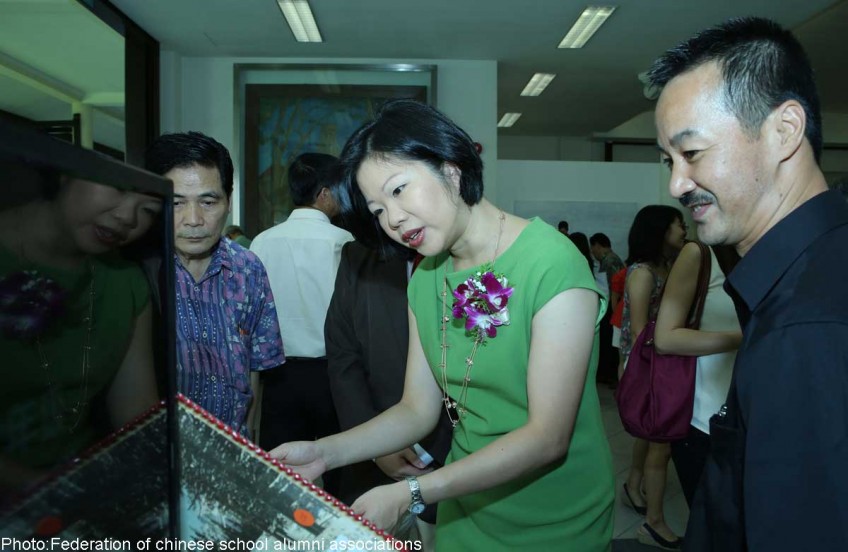Exhibition pays tribute to Chinese-medium schools


More than 500 people attended the launch of an exhibition that commemorates traditional Chinese schools yesterday.
Many guests were former students of some 350 schools, most of which have closed down. The remaining schools were preserved under the Special Assistance Plan (SAP), or converted into mainstream English ones, in line with the Government's emphasis on bilingualism.
The exhibition, "Chinese Schools - A Lasting Legacy", was organised by the Federation of Chinese School Alumni Associations and focused on the schools that have since shut down.
Its chairman, physics professor Phua Kok Khoo, told The Straits Times that Chinese language and culture must continue to be developed in the curriculum. But first, alumni who have benefited from such education must band together. That is partly why the exhibition was organised, he said. "Because their schools have closed down, many alumni have lost touch. This is for them as well."
Alumnus of now-defunct Joo Koon Public School Lee Tak Huak, 66, was thrilled to attend the exhibition. In a short speech, he recounted some of his memories at the school, including a long walk on an uneven road, and his favourite physical education classes.
Minister of State for Education Sim Ann was the guest of honour. Speaking in Mandarin, she said: "Although many of these schools have faded into history, their contribution to education in Singapore deserves recognition and remembrance."
The exhibition was also timely, given Singapore's 50th birthday next year. She said: "The exhibition will help Singaporeans acquaint themselves with the contributions of Chinese schools to the education scene."
Traditional Chinese-medium schools emphasised talent development and the transmission of moral values, she said, adding that the latest character and citizenship education curriculum highlights core values such as respect for others, perseverance and a sense of responsibility. It also "develops a person's appreciation of family, society, the nation and the world", an approach "consistent with the values... upheld by traditional Chinese-medium schools".
Besides an exhibition, the federation also published a 250-page commemorative magazine. Its vice-chairman, former Lianhe Zaobao journalist Poon Sing Wah, mobilised over 50 SAP school students to interview 55 alumni from these old schools for the book.
Ms Poon said she hopes her six-month labour of love will help extend the legacies of these Chinese schools, and the longevity of Mandarin.
"People say I'm naive for thinking Mandarin can still live on, given falling standards. But parents still care - that's why they send their children to Mandarin tuition. They know it's important to get your Mandarin right," she said.
River Valley High School student Wong Jia Ying, 15, who helped interview an alumnus, said that though most of her friends were more comfortable speaking in English, she does not think it is too late to turn things around.
"Why not incorporate ancient Chinese history into our curriculum? It's exciting, and will give language learners a sense of place and time," said the bilingual student.
The exhibition will run till July 20 at the Hwa Chong Institution.

This article was first published on July 14, 2014.
Get a copy of The Straits Times or go to straitstimes.com for more stories.